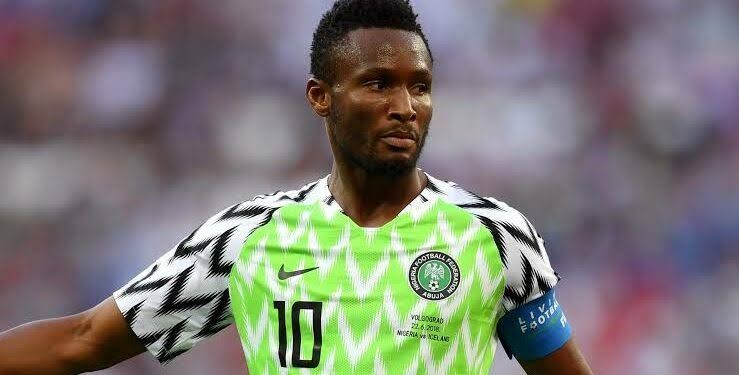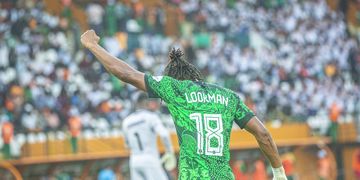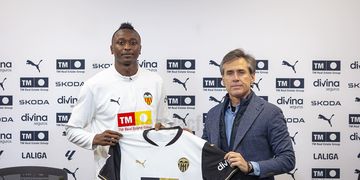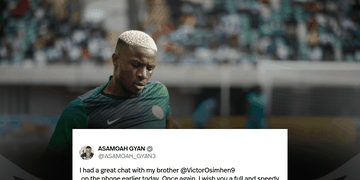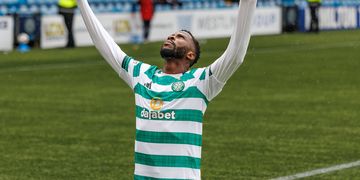The name that has gone on to become one of the greatest in the Super Eagles’ modern history was a mistake – perhaps one of the best mistakes ever made by the football federation
John Obinna Michael had dazzled the world alongside his colleagues at the Finland 2003 U-17 World Cup.
He was the best player in the Nigerian shirt, then starring Obi and wearing the #8 jersey. What the world didn’t know at the time was that little boy would go on to be the centre of a transfer tussle between two of England’s biggest clubs.
Before that period, the world would see Mikel again, this time in the Netherlands where a rightly sentimental local fan base thought he deserved to be the tournament’s Most Valuable Player. The player who pipped Mikel to that prize is today, arguably the greatest man to have ever played football. It is in part, an explanation of just how special Mikel was.
A transfer tussle between Chelsea and Manchester United made Mikel one of the most popular youngsters in the world and he didn’t play club football for about a year. A tough period during his career but one which was significant to strengthening his resolve to live up to hype. If he achieved the world, especially Nigerians’ hype of his great potential is another debate entirely.
Mikel has announced his retirement from football at the age of 35, having played for Nigeria at every level from the U-17 to the Super Eagles. He represented Nigeria in every major tournament there is in football and is one of the few Nigerians to have ever won an African Cup of Nations title.
In this article by Soccernet, we look back at the five key moments that defined John Obi Mikel’s Nigeria career.
5. Nigeria vs Iran – 2014 World Cup
Mikel was named the Budweiser man-of-the-match in a Brazil 2014 World Cup game against Iran. While the game ended goalless, Mikel was a mammoth presence in the midfield for the Super Eagles.
4. Nigeria vs Zimbabwe – Egypt 2006 AFCON
Mikel was in the middle of a transfer tussle between Manchester United and Chelsea when he got a nod to represent the Super Eagles at the AFCON.
Austin Eguavoen invited Mikel to the AFCON. He had little choice. His brilliance at the U-20 World Cup was too good to be ignored and on his AFCON debut, he scored and assisted Christian Obodo’s goal against Zimbabwe.
That proved to be Mikel’s grand entrance into a national team career that gave him good memories.
3. Nigeria vs Argentina – Netherlands 2005 WYC Final
The game still fondly remembered after close to two decades was the one Nigerians stood up for Mikel. Mercurial, effervescent, efficient, the former Chelsea midfielder showed great offensive and orchestrating skill. The only blight on what could have been a perfect night was the presence of a far greater footballer, Lionel Messi. Although Nigeria lost the game, Mikel won many hearts
2. Nigeria vs Honduras – 2016 Olympics Third Place match
Mikel had drawn the ire of Nigerian fans in 2008 when he missed out on the Olympics due to club engagement. It would take some time to forgive him and Nigerians never completely forgave him until his major success five years later.
In 2016, he defied the warnings of then Chelsea manager Antonio Conte to lead the Dream Team XI to the Olympics. Mikel underlined his legendary status at the tournament as he led the team to a bronze medal finish in Rio de Janeiro.
1. Nigeria vs Burkina Faso – 2013 AFCON final
By far the most important game of Mikel’s Super Eagles career, Mikel was pivotal to Nigeria winning its first AFCON in almost two decades and just its third in history.
The achievement came in his 7th year in the national team and on his 4th AFCON. Mikel played just one more edition of the tournament before quitting the national team in 2019.
He was Super Eagles captain and led the senior national team to two major tournaments including the 2018 World Cup, 2019 AFCON.


